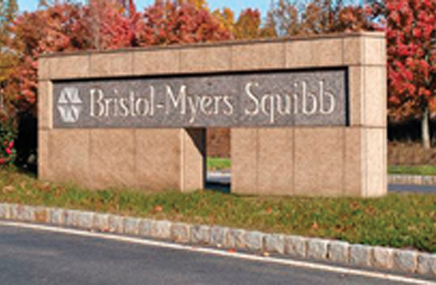Bristol-Myers Squibb gave analysts some immuno-oncology news to chew on Tuesday, in addition to its first-quarter financial results: it plans to complete its rolling submission for experimental PD-1 therapy for non-small cell lung cancer nivolumab by the end of this year.
The IO category is one which investors have been watching closely, and one which the company has been careful to not reveal too much about. BMS held out on releasing data about its Yervoy-nivolumab combination in January, an absence which failed to dilute expectations for the company’s anticipated presence in IO. Credit Suisse analyst Vamil Divan wrote at the time that his firm expected the BMS immuno-oncology effort could become an $8-billion business by 2020.
A Monday IO analysis by Leerink analyst Alice Avanian shows that the emphasis on this division has not wavered, with the analyst calling 2014 a “pivitol year in immuno-oncology (IO) led by top pick BMY.” Her firm forecasts an IO market of $29 billion by 2025, dominated by lung cancer.
The drugmaker also announced Tuesday that it purchased the private biotech iPerian. The San Francisco company specializes in treatments that focus on Tau proteins, which are associated with Alzheimer’s. While the acquisition may appear to be a backtracking—BMS said last year that it was no longer going to pursue the neurosciences—spokesperson Laura Hortas clarified that the decision had an asterisk of sorts attached: BMS would still pursue Tau technologies as well as genetically defined diseases. The iPierian acquisition hits both marks.
As for immediate results, the company missed consensus sales estimates, with $3.8 billion in sales, down 1% from the same period last year. Notable sales jumps include the 19% increase in sales of oncology drug Sprycel, compared to the same period last year, an 18% uptick in sales of cancer drug Yervoy, and a 13% increase in sales of RA drug Orencia. The company scaled back on advertising and product promotions during the quarter, spending $946 million, or 2% less, than in the same period last year.
BMS will continue to reduce its promotional spend and said 2014 outlays will drop “in the mid-teen range.” Marketing, sales and administrative expenses will also fall throughout the year, “in the mid-single-digit range.” R&D expenses, however, will rise.








